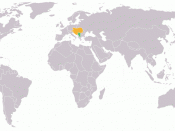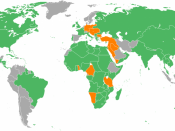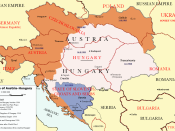World War I, also know as the First World War, the Great War, and the War to End All Wars, was a global war fought mainly in Europe from 1914 to 1918. Nearly 70 million soldiers took part in the fighting, with over 40 million causalities. The war was chiefly between the Allied Powers and Central Powers over many disputes between the two. The Allied Powers, also known as the Entente Powers, included the Russian Empire, France, the British Empire, Italy, the Empire of Japan, and the United States, along with many other smaller states. The Central Powers consisted of the German Empire, the Austro-Hungarian Empire, the Ottoman Empire, and the Kingdom of Bulgaria. The war took many turns, but in the end had a major impact on Europe politically, economically, and socially.
There are many reasons known to be the cause of World War I, all which contribute to the breakout of allied powers.
In June of 1914, Gavrilo Princip, a Bosnian Serb student, shot and killed Archduke Franz Ferdinand, heir to the Austro-Hungarian throne. Princip was a member of a group of South Slavs dedicated to gain independence from Austria-Hungary. The assassination of Ferdinand quickly lead to many other events that eventually escalated into World War I. Austria-Hungary demanded actions by Serbia to punish those responsible, and when Serbia did not cooperate, Austria-Hungary declared war. The fundamental causes of the conflict, however, were deeply rooted in the European history of the previous century, particularly in the political and economic policies that prevailed in Europe after 1871. Imperialism also played a major role in the causes of World War I, mainly because it was the issue that made Germany enter the war on the Central Powers side. By 1900, the British Empire extended over five continents,



Great job
totally agree the war is never over we live in an every day war all around the world. this essay was very good
0 out of 0 people found this comment useful.